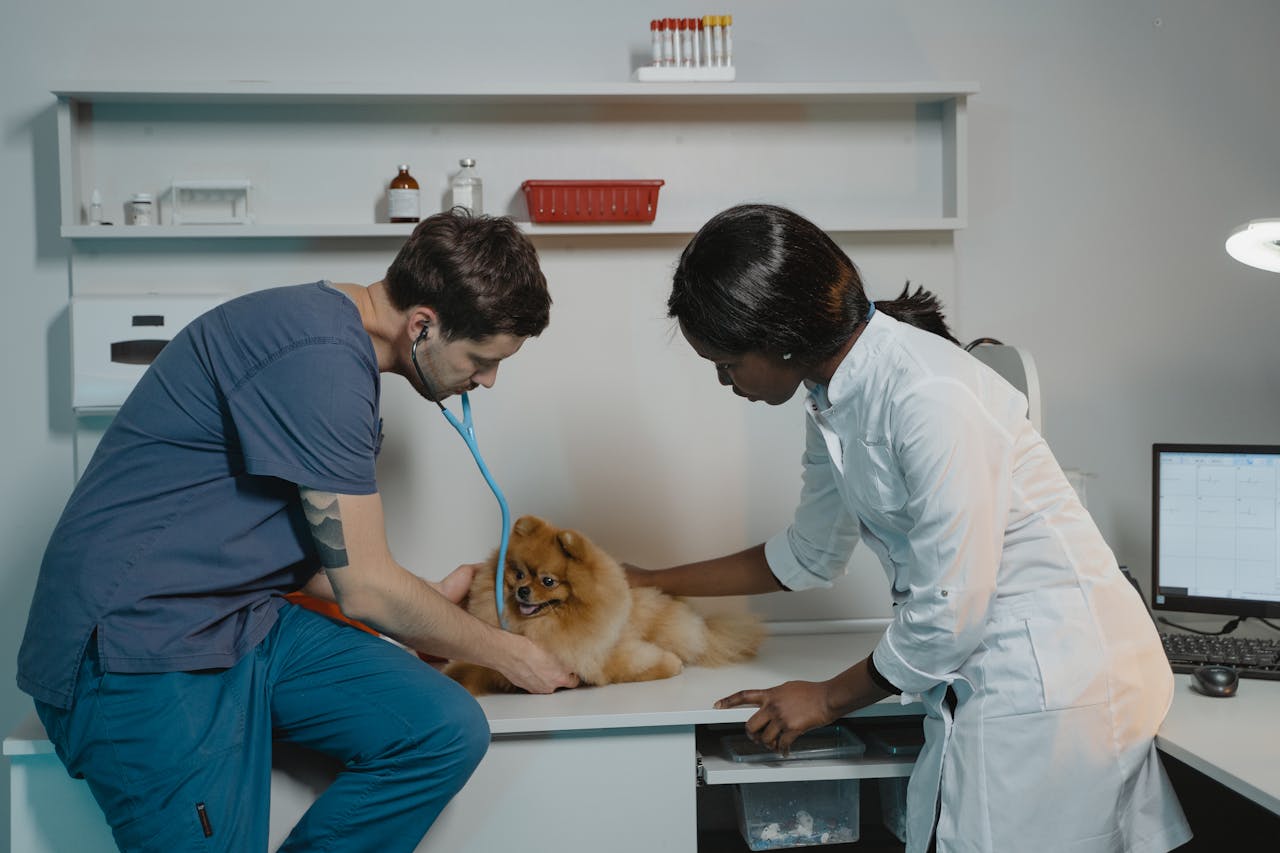How To Study Medicine With Low Grades

Uh-oh! Something has gone horribly wrong, and now your grades are all over the place! Maybe that means the old biology teacher is refusing to let you fix your grade from a B to an A even though you need it! Or perhaps a global conspiracy of lizardmen has recognised that you’ll cure cancer one day and hacked the system to change your grades! What are you going to do?
Don’t panic! Truth be told, the people who tell you that your high school grades will determine the rest of your life aren’t quite as right as you think.
The truth is, there are plenty of opportunities for higher education, even for students with low GCSE grades or A-levels - and that includes medical school. So, if you’ve been losing sleep on how to study medicine with low grades, don’t worry: we can help!
Table of Contents
Get free advice on medical schools that accept students with lower grades:
Check your email to Book a FREE call
with an expert advisor
Look at your promotions/spam folders, just in case.
How to get into medicine with low grades
There are many ways to improve your grades or, alternatively, deal with the situation. For example, you can retake exams for subjects you have bad grades in, or you can take a year off to go through a foundation year, which will give you a much higher chance of getting into medical school the next year.
Unfortunately, the big, nasty downside to these solutions is that they make you waste one year, maybe even more. That means one more year before you can start working, one more year in which your peers will progress through their education without you, and one more year in which you may need to live with your parents instead of on your own.
Obviously, this isn’t ideal - the best course would be for you to start studying medicine right away without wasting any more time. But don’t be afraid; there are other ways to study medicine with low grades, whether that’s taking a gap year or even studying medicine in Europe.
Alternative routes into medicine
With bad grades, your options, sadly, get a little bit limited - but never fear, Medlink Students is here! There are still ways to get into your dream career (whether that’s medicine, dentistry, pharmacy or anything else related to medicine), and the best one is to simply look into medical universities with low entry requirements.
Keep in mind that while most medical universities provide the same level of education (and a diploma/licence recognised by the GMC), they differ vastly in terms of tuition fees, living expenses, practice opportunities, and, yes, entry requirements. Some universities operate in countries or areas where the standards for grades in order to get into higher education are simply lower than they are in, say, the UK. Others have a certain quota they’d like to fill for international students and, as such, are quite generous when it comes to the grades of the students they accept.
Whatever the case may be, it’s always important to keep in mind that many universities in Europe have low requirements, and studying in a European medical university in English is definitely the most viable alternative route into medicine. A lot of students wonder what the lowest entry requirements for medicine are, but it’s important to keep in mind that the standards of each university are very different and not so easily categorised into “lowest” or “highest”.
Study Medicine in Europe
Believe it or not, studying medicine in Europe isn’t all that different from studying it in the UK or another Western country (for example, the US or Canada). Regardless of where you choose to study, you’ll receive 6 years of education in English, a minimum of 5,500 study hours and rotations in a real-world environment. And finally, of course, a degree in medicine will be recognised by the GMC and will allow you to obtain a licence to practice wherever you want.
With all that said, there are many tangible benefits to studying medicine in Europe:
- Generally lower entry requirements (lower grades, no entrance exam, etc.)
- Significantly lower tuition fees and cost of living
- Opportunity for true independence away from home
- This is a lifetime chance to meet new friends from a different culture
Being a doctor is, after all, just as much about smarts as it is about empathy. While he’s very entertaining to watch on TV, in the real world, Dr House would probably be fired instantly regardless of how good of a diagnostician he is. It’s been proven that making friends with those different from yourself improves your empathy and helps you relate more to others, which is an indispensable skill for doctors that you can’t really learn in a traditional university course.


Reserve Your Spot for Our Webinar
Discover your options for studying medicine in Europe with your current grades
Universities with low entry requirements for medicine
Don’t make the mistake of assuming that just because a university has low entry requirements, that means it provides a lower level of education because that couldn’t be further from the truth. Take, for example, Near East University in Cyprus, which educates more than 26,000 students from 100 countries - a good chunk of which enrolled in the university’s renowned medical, dental and pharmacy programmes. The university is a recognised member of 118 global institutions and organisations, including UNESCO and the JCI. Furthermore, they also provide a veterinary education, which gives students with low grades alternative routes into veterinary medicine.
If you’re interested in a more exotic location, the European University in Tbilisi is a fantastic choice that’s becoming more and more popular in recent years. It provides courses in dentistry and medicine with very low tuition fees and living costs, all while being a very new, modern university which employs some of the best educators in the field. European University also owns the famous Jo Ann Hospital, which is used to give students a practical look at a real-life hospital environment. All with no entrance exams!
And if Georgia is a little bit too far from home, how about Poland? The Medical University of Lublin is located in the heart of Europe and offers international students the chance to study medicine in English, as well as dentistry. The city of Lublin is very much a ‘student town’, with a third of its 350,000 population being students, which means that there are a lot of young people and businesses meant to appeal to them. But if you’d rather devote yourself fully to your education, don’t worry. The university has partnered with four major clinical teaching hospitals throughout Poland that provide students with all the practical training they need to become full-fledged doctors.
What you need to study at medical universities with low entry requirements
Unsurprisingly, you need less than you would at a traditional medical school. At some universities, you won’t even need to pass any kind of biology or science entrance exam to attend; you only need an interview with the faculty to determine your motivations and strength of character. In other words, they’re far more concerned with who you are as a person rather than what a number on a piece of paper says.
With that said, however, there are still a few things you’ll need to prepare to apply to study medicine in Europe. For example, if you’re a non-native English speaker, you’ll need to present an officially recognised certificate of proficiency, such as IELTS, TOEFL or the equivalent available in your country. If you’ve been reading this article so far, then don’t worry; you’ll probably do just fine!
You will also need a high school diploma, which proves you’ve successfully completed this stage of your education and are ready to move on to the next one. Granted, while low grades aren’t typically an issue, you need to have actually completed your high school education before you can start learning how to cut people up. So, if you’ve got a failing grade, then you’ll need to first retake the exam for whatever subject(s) you failed and actually get your diploma before you can apply for universities.
As previously mentioned, you also need to pass an online interview with the faculty of the medical school of your choice, which can be done online (for example, through a program such as Skype). The questions will all be about yourself, such as “why do you want to become a doctor” “what’s the biggest achievement of your life” and “how do you deal with stressful situations”. Be honest, be confident, and you’ll do great!
Some universities also require entrance exams in chemistry, biology or physics, but others do not, especially those that are generally open to students with lower grades. All universities outside of your country will require a passport, however - which makes sense since you’ll be travelling. Getting your passport is an annoying and quite bureaucratic process, but fortunately, not one that you can actually fail.
Before you embark on your application process, it’s advisable to look into structured programs that ease your transition into medical school. For a comprehensive guide on first-year entry into medical-related fields, visit our page on First-Year Entry into Medicine, Dentistry, Pharmacy, and Veterinary.
How to get into medical school with bad grades
Applying to medical school, especially a European one, can be a long, complicated and, quite frankly, scary process. You’d need to not only set up all interviews and communication with the university but also translate all of your documents into the country’s native language, get them notarised and certified by the proper authorities… Oh, and get your high school diploma converted into the equivalent level in the country’s own education system, which is typically done by the Ministry of Education and is an ordeal in and of itself.
But don’t worry - it doesn’t need to be this complicated! We’re experts who can handle all of that for you and also make sure you get into the medical course of your dreams, even with low grades! Don’t let something as small as high school grades keep you from becoming a doctor. Our student advisors are always ready to help; all you need to do is request a FREE consultation!
17 comments on “How To Study Medicine With Low Grades”
Leave a Reply

About Medlink Students
Leading international recruitment company for medical students in Europe. British Council Certified Agents. 10+ years of experience and more than 10,000 students advised.









Hello, I got B in Biology, E in chemistry and C in English.
Can I get admission in any MBBS college in Europe?
What will be fees and entrance requirement?
Thank you
Hey! Thank you for contacting us. This is an excellent question that is best answered in person after considering your situation. You can do that for free here https://www.medlinkstudents.com/apply/. It takes only 10 seconds, and one of our advisors will contact you as soon as possible.
Hey there i wanna do medicine but i have low grades
I had of gateway for medicine does other varsity offers gateway for med besides USA? I'm from south Africa
Yes, there are courses in Europe called Premed programmes that would be a great fit for you! These help you gain all the skills required for the medical degree. We help many students gain admission into these courses every year.
Where can I do medicine with CCE grades
Hey! Thank you for contacting us. We work with 100+ medical universities in Europe and beyond. For the best option, please discuss it with our expert advisors. This is an excellent question that is best answered in person after considering your situation. You can do that for free here https://www.medlinkstudents.com/apply/. It takes only 10 seconds, and one of our advisors will contact you as soon as possible.
I have a mean grade of B+
Hey! Thank you for contacting us. Concerning your grades our expert advisors will guide you and suggest admission options to medical schools. This is an excellent question that is best answered in person after considering your situation. You can do that for free here https://www.medlinkstudents.com/apply/. It takes only 10 seconds, and one of our advisors will contact you as soon as possible.
I have a mean grade of B+ can I still do medicine?
Hey! Thank you for contacting us. About required grades and possible options to get into med school can be learned from our expert advisors. This is an excellent question that is best answered in person after considering your situation. You can do that for free here https://www.medlinkstudents.com/apply/. It takes only 10 seconds, and one of our advisors will contact you as soon as possible.
Hey I've got 2E and 1D for PCB do u think I can get into any med skls?
Hey! Thank you for contacting us. Our expert advisors will guide you on your options to get into med school with your current qualifications. This is an excellent question that is best answered in person after considering your situation. You can do that for free here https://www.medlinkstudents.com/apply/. It takes only 10 seconds, and one of our advisors will contact you as soon as possible.
I actually think that Doctors with lower foundation qualifications should be allowed access to medical school, there are plenty of doctors and consultants that I have met as a patient that come from good medical schools, who come across as arrogant and really quite horrible. I have taken three of these to the GMC and am in the process of taking my own GP to the GMC too- he actually got his medical degree from Dundee, and yet he has continually gotten my repeat prescriptions wrong! I have known people in other professions do really well with either c grades at GCSE and C/D grades at A-level. My measure of a good doctor is this : good people skills, good competency - gets it right most of the time, first time, approachable, and will do all they can to help (within reason), for those qualities there is no GCSE or A-level, just experience and the more a Doctor has the better they normally are. Being from a top medical school just says someone is academically bright but they maybe practically useless with people and things that really matter.
Hi I have always wanted to do medicine but I have a mean grade of d-can I still do medicine
I did my 12th with D grades then I did 2yrs diploma in ophthalmics with grade A and can I get addimssion in med
I did. 12th with GradeD and then to improve I did medical field 2years diploma in ophthalmics passed with grade A can I study med
I have got two 7s-chem maths and four 6s-bio,physics,computing,english lang, and 5 3s-english lit,citizenship,history. Do you still think i can get into medicine with these grades